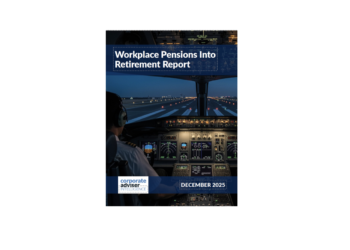DC scheme assets have grown by 25 per cent, increasing from £164 billion in 2023 to £205 billion in 2024, according to Hargreaves Lansdown.
This marks a ninefold increase, driven by contributions and investment returns, compared to 2011 when assets stood at just £22 billion. The average pension pot per member increased 17 per cent, from £6,000 in 2023 to £7,000 in 2024, reflecting higher contributions and market gains.
According to Hargreaves Lansdown, the defined contribution pension market is still dominated by auto-enrolment, with 99 per cent of memberships (or 28.8 million out of 29 million) in schemes that use automatic enrolment. Micro and hybrid pension plans have also been declining, with a 75 per cent decrease in numbers since 2011.
Hargreaves Lansdown head of workplace saving analysis Clare Stinton says: “DC pensions are on the up with more people saving than ever before and average pot values rising as a result of consistent auto-enrolment contributions – now in operation for over a decade – and the magic power of compounding returns.
“But while the news is promising, there’s still work to be done. The latest data from HL’s Savings & Resilience Barometer reveals that only 36.4 per cent of households are on track for a moderate retirement, which costs approximately £38,128 for couples and £26,129 for single individuals.
“This does raise further questions about the long-term adequacy of AE contribution levels in helping people build a resilient retirement – or going one better, helping people achieve their dream retirement. Other reforms should include looking at how employers could be incentivised to contribute more to their employee’s pensions – particularly for employees who are willing to increase their own savings.
“Big continues to be beautiful with the market gravitating toward larger providers, with a significant decline in micro schemes. Membership in schemes with over 5,000 participants has soared from 1.6 million in 2011 to 30.2 million in 2024. This consolidation reflects a shift towards scaling operations and reducing costs, especially after the FCA emphasised the need for member-centric schemes that prioritise the long-term interests of their members through a proposed value-for-money framework.”





